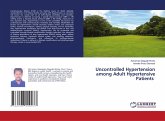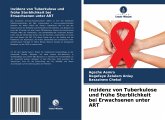
Broschiertes Buch
4. Februar 2025
Verlag Unser Wissen

29,99 €
Versandfertig in 6-10 Tagen
Broschiertes Buch
8. Januar 2025
LAP Lambert Academic Publishing
Broschiertes Buch
4. Februar 2025
Ediciones Nuestro Conocimiento
Broschiertes Buch
4. Februar 2025
Editions Notre Savoir
Broschiertes Buch
4. Februar 2025
Edições Nosso Conhecimento
Broschiertes Buch
4. Februar 2025
Edizioni Sapienza
Broschiertes Buch
4. Februar 2025
Wydawnictwo Nasza Wiedza
Ähnliche Artikel


Broschiertes Buch
26. Januar 2022
Verlag Unser Wissen

Broschiertes Buch
31. Oktober 2022
Verlag Unser Wissen

Broschiertes Buch
28. Juni 2022
Verlag Unser Wissen
95997119

Broschiertes Buch
Prädiktoren der Säuglingssterblichkeit in Äthiopien
27. November 2023
Verlag Unser Wissen
Ähnlichkeitssuche: Fact®Finder von OMIKRON
